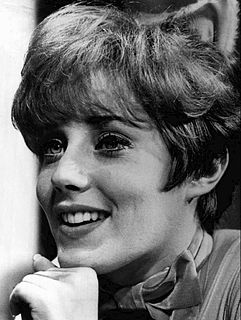A Quote by Arthur Helps
Love, like the opening of the heavens to the Saints, shows for a moment, even to the dullest man, the possibilities of the human race. He has faith, hope, and charity for another being, perhaps but a creation of his imagination: still it is a great advance for a man to be profoundly loving even in his imaginations.
Related Quotes
It is hard to see how a great man can be an atheist. Without the sustaining influence of faith in a divine power we could have little faith in ourselves. We need to feel that behind us is intelligence and love. Doubters do not achieve; skeptics do not contribute; cynics do not create. Faith is the great motive power, and no man realizes his full possibilities unless he has the deep conviction that life is eternally important, and that his work, well done, is a part of an unending plan.
The Christian religion, outwardly and even in intention humble, does, without meaning it, teach man to regard himself as the most important of all created things. Man surveys the starry heavens and hears with his ears of the plurality of worlds; yet his religion bids him believe that his alone out of these innumerable spheres is the object of his master's love and sacrifice.
Holiness provokes hatred. The greater the holiness, the greater the human hostility toward it. It seems insane. No man was ever more loving than Jesus Christ. Yet even His love made people angry. His love was a perfect love, a transcendent and holy love, but HIs very love brought trauma to people. This kind of love is so majestic we can't stand it.
Hope is critical to both faith and charity. When disobedience, disappointment, and procrastination erode faith, hope is there to uphold our faith. When frustration and impatience challenge charity, hope braces our resolve and urges us to care for our fellowmen even without expectation of reward. The brighter our hope, the greater our faith. The stronger our hope, the purer our charity.
If I could blame it on all the mothers and fathers of the world, they of the lessons, the pellets of power, they of the love surrounding you like batter ... Blame it on God perhaps? He of the first opening that pushed us all into our first mistakes? No, I'll blame it on Man For Man is God and man is eating the earth up like a candy bar and not one of them can be left alone with the ocean for it is known he will gulp it all down. The stars (possibly) are safe. At least for the moment. The stars are pears that no one can reach, even for a wedding. Perhaps for a death.
As a race, the African is inferior to the white man. Subordination to the white man is his normal condition. He is not his equal by nature and cannot be made so by human laws or human institutions. Our system, therefore, so far as regards this inferior race, rests upon this great immutable law of nature.
Solitude is the profoundest fact of the human condition. Man is the only being who knows he is alone, and the only one who seeks out another. His nature - if that word can be used in reference to man, who has ‘invented’ himself by saying ‘no’ to nature - consists in his longing to realize himself in another. Man is nostalgia and a search for communion. Therefore, when he is aware of himself he is aware of his lack of another, that is, of his solitude.
[He] looked up and imagined the hand of God flinging stars like shining dust across the heavens. No. He was wrong to think such pagan thoughts, for God had only to utter a word and it was done. Only man had He shaped with His hands, using the dust He created to form His most precious and amazing creation. Only man was molded and loved into being, the breath of life in his lungs given by God.
Here and there awareness is growing that man, far from being the overlord of all creation, is himself part of nature, subject to the same cosmic forces that control all other life. Man's future welfare and probably even his survival depend upon his learning to live in harmony, rather than in combat, with these forces.








































